Ear laying. At what pressure does the ear lay: high or low
Ear congestion is a symptom that signals excessive pressure on the ear membrane with an internal or the outside. Unpleasant feeling often occurs when flying, diving, rising in the mountains or the development of rhinitis. Increasing the difference between internal and external pressure on the ear membrane leads to its tension. As a result, the elasticity of the membrane decreases, which affects the quality of sound signals.
A frequent cause of the appearance of congestion is a sudden change in blood pressure. What pressure? According to experts, congestion may be due to both hypotension and hypertension. Due to decrease or increase in tone blood vessels pathological changes occur in the body leading to the appearance of an unpleasant symptom.
The reasons
The feeling of congestion in most cases is accompanied by hearing impairment and the appearance of autophony, in which a person clearly hears his own voice in the head. If the pressure difference on the ear membrane is high, sharp shooting pains, dizziness and a feeling of fluid transfusion in the ear are felt. The main provocateurs of ear congestion include:
- rhinitis;
- tubootitis
- hypertension;
- hypotension;
The key reason for laying the ears is a change in pressure, which leads to a decrease in the elasticity of the ear membrane. When a sound signal hits the external auditory canal, the ear membrane undergoes slight fluctuations, as a result of which the amplification of sound does not occur. For this reason, a person experiences an uncomfortable feeling of congestion and a sharp decrease in hearing.
Salpingotitis
Salpingoitis (Eustachitis) is an otolaryngological disease characterized by inflammatory processes in the mucous membrane of the middle ear and the Eustachian tube. The occurrence of pathology is most often due to the development of infection in the upper airway. 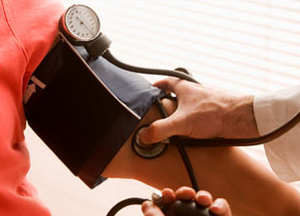 During the reproduction of pathogens in the cavity of the nasopharynx, an infection of the Eustachian tube occurs, from where pathogens penetrate into the tympanic cavity.
During the reproduction of pathogens in the cavity of the nasopharynx, an infection of the Eustachian tube occurs, from where pathogens penetrate into the tympanic cavity.
As a result of inflammation, the mucous membrane of the auditory tube increases by several times, which leads to a violation of its aeration function. The cells of the mucous epithelium begin to absorb the remaining oxygen in the ear, resulting in a sharp decrease in pressure in the ear. For this reason, the ear membrane is pressed into the tympanic cavity, which leads to a decrease in its elasticity and, consequently, a feeling of congestion.
Rhinitis
When is it laying ears and what pressure contributes to the onset of a symptom? Rhinitis (runny nose) is one of the most common causes of changes in internal pressure on the ear membrane, resulting in a feeling of congestion and transfusion of fluid in the ear. Inflammation of the nasopharyngeal mucosa, triggered by viruses or bacteria, leads to tissue swelling. The result is a narrowing of the lumen in the Eustachian tube connecting the cavity of the middle ear with the nasopharynx.
Important! With a cold, you can not sharply inject air into the nasal passages to release them from the accumulated mucus. A sharp increase in pressure on the ear membrane can damage it.
The auditory tube performs the ventilation function, i.e. contributes to the alignment of external and internal pressure on the ear membrane. With the development of rhinitis, the internal diameter of the channel narrows, as a result of which the pressure in the ear decreases significantly, which leads to indentation eardrum inside the ear. This becomes the key cause of the unpleasant sensation.
Arterial hypertension
Hypertension (arterial hypertension) is a disease that is characterized by an increase in blood pressure. According to experts, common cause development of the disease is a circulatory disorder, which may be due to a number of precipitating factors:
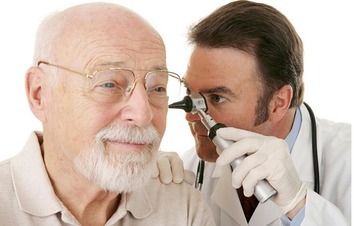
When a patient lays his ears under pressure, this indicates spasm of blood vessels, as a result of which blood circulation is impaired. The narrowing of the lumen in the vessels causes poor oxygen supply of the tissues, as a result of which air in the ear cavity becomes discharged, i.e. creates a low vacuum. In addition to ear congestion, signs of the development of hypertension will include:
- memory impairment;
- headaches;
- swelling of tissues;
- bleeding from the nose;
- fast fatiguability.
Important! Failure to reduce high blood pressure can cause a hypertensive crisis, heart attack or stroke.
Change in external pressure
According to experts, the increase in external atmospheric pressure on the ear membrane is one of the causes of congestion. The eardrum is an elastic membrane, impermeable to air. It is innervated nerve endings the tympanic nerve, which originates in the glossopharyngeal branch.
Excessive onslaught of air masses on the membrane leads to its deformation, as a result of which it does not resonate sounds coming from outside. As a result auditory ossicles a weak signal is reported, which is subsequently accepted and processed by the auditory receptors. As a result, a person hears a “muffled” sound, which indicates a congestion of the ears.
 Untimely equalization of internal and external pressure on the ear membrane causes barotrauma.
Untimely equalization of internal and external pressure on the ear membrane causes barotrauma.
A sharp increase in atmospheric pressure may be due to:
- air travel;
- submersion;
- rise in the mountains.
Critical deformation of the ear membrane can cause shooting pains.
Hypotension
Can it lay ears at low pressure? Hypotension is less common with hypertension, but it can cause laying ears. Low blood pressure is due to cardiovascular diseases, insufficient vascular tone, significant blood loss, depression, neurosis, etc. According to statistics, most often hypotension occurs as a result of a deterioration of vascular tone. This leads to thinning of the capillary walls, as a result of which their permeability increases. For this reason, swelling of the mucous ENT organs, in particular the Eustachian tube, is increasing. The reduction of its lumen will inevitably lead to the formation of a vacuum in the cavity of the middle ear, as a result of which there is a feeling of congestion in the ears.
If the low pressure lays the ears, this indicates the presence of stagnant processes in the vessels. In order to eliminate the problem, the heart muscle begins to contract more intensively, as a result of which the upper one rises, systolic pressure. The increase in the difference between the upper and lower pressure is called pulse pressure. If its performance exceeds 40 mm Hg. Art., it will lead to the defeat of the cardiovascular system.
What to do?
With a sudden ear laying, you can try to eliminate the symptom yourself. It is known that the mouth of the Eustachian tube opens during swallowing or yawning, which contributes to the flow of air into the tympanic cavity. Thus it is possible to equalize the external and internal pressure on the ear membrane, which will lead to the disappearance of the unpleasant symptom. How to do it?
There are several simple exercises that are recommended for performance during air travel or travel on fast trains:

If the feeling of congestion does not disappear within a few days, you should contact your otolaryngologist for help. A symptom may indicate the development of more serious diseases, such as Miniera’s disease, cardiovascular diseases.
With a sharp change in pressure, a person feels unpleasant pressure on the ear membrane. It is important for a person to understand at what pressure the ears are laid. Naturally, when driving in an elevator or when taking off an airplane, you can feel stuffy ears. This distinction between causes can be a major factor in understanding whether to churn or increase the pressure of the patient.
Causes of disease
In connection with sharp jumps of internal (intra-aural) and external (atmospheric) pressure, a person is inclined to feel these drops. But in some circumstances, such drops are considered the norm (when boarding or taking off an aircraft, while descending in an elevator). In other cases, may indicate the presence of the disease. This process can be dangerous, since pressure on the eardrum sometimes results in temporary and permanent hearing loss. When sinusitis, acoustic neurinoma, otitis, obstruction of the ear is observed. At the same time, the pressure in a person is normal. However, it is impossible to diagnose and treat these diseases effectively. In the ear simply can form sulfuric or water plug, which also leads to congestion. After all, sulfur and water, which fell into the ear, put pressure on the drum wall with great force and for a while a person loses hearing clarity.
Rhinitis and ear congestion
 Rhinitis can cause unpleasant pressure in the ears.
Rhinitis can cause unpleasant pressure in the ears. When rhinitis, in addition to the symptoms of SARS, there is obstruction of the nose and ears. This is not a separate disease, but the symptoms of a complex disease. When rhinitis in the organs of hearing there is a feeling of a foreign object ("traffic jams"). This feeling is connected with the physical structure auricle. Namely, with the swelling of the Eustachian tube, a vacuum reservoir is created near the eardrum. In addition, short-term increased pressure in the auricle occurs during sharp blowing of the nose. Therefore, blowing nostrils should be alternately. In addition, a person feels ear congestion:
Indicate your pressure
Move the sliders
- in the presence of sulfuric plug;
- if sinusitis progresses (inflamed maxillary sinuses);
- if a facial nerve is at the stage of inflammation.
Hypertension and high blood pressure
If a person has arterial hypertension, then circles appear before his eyes and there is ear congestion. This is due to pressure surges. And at an elevated level, drops in blood pressure are felt. Since blood does not flow through narrowed vessels, the pressure on the vessel walls is maximal. Squeezes the occipital and temporal part of the head. And, as a result, a person complains of pulsation in the ear, it starts to hurt as if from the inside.
 Inflammation of the auricle can lead to hearing loss.
Inflammation of the auricle can lead to hearing loss. The causes of this disease are the same as for otitis and rhinitis - pressure on the eardrum or inflammation in the ear. When salpingoitis, the presence of a foreign object or water in the ears is felt. But unlike otitis, with a complex form of salpingootitis (purulent), fluid with pus accumulates in the organ of hearing. Treatment should be prompt, because with improper treatment, the eardrums can be atrophied, leading to irretrievable hearing loss.
Low pressure
With low pressure it lays the ears very rarely. Sometimes, with low blood pressure, a person falls unconscious in a swoon. After he comes to himself and rises, lays his ears. It is with a sharp jump tingling in the ears, there is a feeling of congestion. In addition, if a person has numbness in the limbs, dizziness, weakness and hearing, it is reduced pressure.
How to measure blood pressure?
In normal blood pressure, the indicators will be reference - 120/80 mm Hg. Art. Everything above and below the norm - deviations. But still you need to take into account age and gender indicators.
 Pressure indicators should not be taken into consideration if the procedure is performed incorrectly.
Pressure indicators should not be taken into consideration if the procedure is performed incorrectly. The special medical device - a tonometer - will help you to find out the exact indicator of blood pressure. All the indicators that are lower, indicate hypotension, and above - about hypertension. When measuring, the diagnostician puts on the cuff of the device just above the elbow bend, fastens and starts slowly pumping air. A stethoscope diagnostician applies a vein to a vein and listens to blood pulsing through the veins. At the moment of maximum knock, the doctor determines systolic blood pressure, and with minimal pressure - diastolic blood pressure. But there are also electronic tonometers that will help to measure blood pressure faster. It is enough to fix these devices on a hand and to press the start button. Both devices are equally effective.
The congestion of the ears always symbolizes the beginning of any negative process, since this symptom never acts as an independent sign. The reasons that can cause this problem are many. These include violation of the rules of hygiene, ear injury during cleaning or domestic situations. But one of the most common causes is considered to be high or low pressure.
A symptom such as ear congestion may act as a warning sign. If you have health problems, it is important to know at what pressure your ears are laid and to take the necessary measures.
If your ears are covered, do not sound the alarm the first time. Often this happens for domestic reasons, for which it is necessary to swallow or move several times. lower jaw.
If, after a yawn or gymnastics, the congestion has not passed, you should check the ear canal for an object or a foreign object.
Although during the penetration into the ear of a foreign object or an insect, patients complain of a feeling of pain, which manifests itself instantly.
In other cases, such as after hygiene, sulfur swells up strongly and begins to press against the walls of the passage. In such cases, the patient experiences congestion and pain.
In addition, the ears can lay in case of a cold or dysfunction of the auditory tubeas well as after the flu and other viral diseases. In otitis, congestion appears only as one of the symptoms. In addition, the patient feels fever, severe hearing loss, impaired function of the vestibular apparatus, and many other signs.
Often, hearing impairment occurs with improper hygiene or its absence. Sometimes young parents forget about the hygiene of children's ears, which causes many inflammatory processes.
Besides, active actions with ear sticks can injure auditory canal or provoke perforation of the eardrum. These signs are becoming frequent factors in the formation of congestion in one or even two ears at once.
Watch your ears when bathing in open water or taking a shower. Water, getting into the ear, can cause not only congestion, but also provoke the appearance of serious ear diseases.
 The same symptom causes complications after a cold or flu.. By themselves, these inflammations are not terrible and not dangerous, but if the disease is not treated, the disease proceeds to the next stage, which will provoke not only congestion, but also more serious symptoms.
The same symptom causes complications after a cold or flu.. By themselves, these inflammations are not terrible and not dangerous, but if the disease is not treated, the disease proceeds to the next stage, which will provoke not only congestion, but also more serious symptoms.
Changes in atmospheric pressure is one of the most common causes of this symptom..
If the atmospheric background has changed dramatically in the surrounding world, people often experience not only congestion, but also slight dizziness. For example, you can imagine a flight in an aircraft or a sharp scuba diving under water.
Hypotension as a cause of ear congestion
Most unpleasant symptoms patients experience hypotension - A disease in which the patient suffers from low blood pressure. Low pressure lays ears, and also causes other extremely unpleasant symptoms.
This inflammation is quite rare, but despite this, it can cause congestion in one ear or both at once.
 Do not confuse high and low pressure, since these two factors differ significantly among themselves.
Do not confuse high and low pressure, since these two factors differ significantly among themselves.
Reduced blood pressure due to diseases of the cardiovascular joints, as well as lack of tone. This can occur due to severe stress, as well as neurosis or blood loss when the body is injured.
But the main cause of pressure changes in the ear is decrease in the degree of vital activity of vessels. Because of this, the patient's capillary protection deteriorates and their injury increases. This can cause swelling of the mucous membranes of the nasopharynx and ears, as well as disruption of the auditory tube.
Congestion appears as a result of the formation of a rarefied gas in the middle ear, which leads to a symptom.
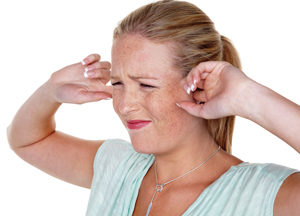 Pay attention to the state of healthif you often lay ears with low pressure.
Pay attention to the state of healthif you often lay ears with low pressure.
This indicates stagnation in the vascular system. To eliminate this process, the body, namely the heart, strengthens its work.
Because of this, the patient feels an increase in systolic, that is, upper blood pressure.
Answering a common question when laying ears, how much pressure does a person have? Most often it is elevatedbut if the patient has chronic hypotension, the ears can build up with low blood pressure.
What to do with ear congestion
If the ears are laid sharply and unexpectedly, you need to do a few exercises. Usually, when the ear is stuffed up, the Eustachian tube is blocked. To open the ducts, take a deep yawn.
If this method has proven ineffective, lie to the side and simulate swallowing movements. After that, you need to actively work the lower jaw: Say the letters "A" and "O" repeatedly.
So you can allow the air to penetrate deep into the Eustachian tube and normalize the state inside the ears. A few minutes after the exercises, the former sharpness of hearing returns to the patient.
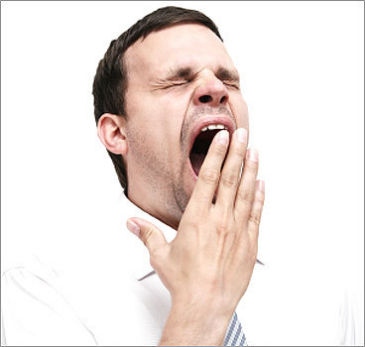 If the methods described above did not help you, you need to do a more serious exercise.
If the methods described above did not help you, you need to do a more serious exercise.
Gather a full chest of air and hold your breath. Then cover your mouth and nose with your hands and try to exhale.
Due to the fact that the air has nowhere to penetrate, it enters the Eustachian tube and forms a certain internal pressure. Thus, it will uncover the occlusion in the middle ear and normalize audibility.
If the reason lies in the formation of sulfuric plug, it must be removed using drugs that dissolve sulfur. These drugs include or as well hydrogen peroxide.
If water gets into your ears when swimming in a pool or other open sources, it should be removed immediately after penetration. To do this, bring along gauze flagella soaked in olive oil. This procedure is necessary for professional swimmers or whose work is closely related to the liquid.
Care for yourself and your health is important for people whose activities are connected with noisy places. For prevention, these people are recommended to bury in their ears twice a month. This way you avoid congestion and other problems with the ears.
In case of congestion caused by injury to the outer ear or from an insect bite, treat the ear or hydrogen peroxide. Continue therapy until complete cure two or three times a day.
 If congestion does not go away for a long time it is necessary to consult an otolaryngologist for an ear examination.
If congestion does not go away for a long time it is necessary to consult an otolaryngologist for an ear examination.
The patient is likely to have otitis or something else. ear inflammationwhich requires medical treatment.
Most often, antibiotics are prescribed and ear drops. At subsequent stages, the patient should undergo a strengthening physiotherapy.
For hypotension or hypertension, the doctor will conduct several examinations. and prescribe a treatment method for an individual case of inflammation. In this case, there is no general treatment regimen. The treatment includes not only the use of antibiotics and other medicines, but also a special massage.
Remember that therapeutic interventions will help eliminate the signs of inflammation and improve the overall feeling of the patient. D for prevention in this case, the doctors recommend to give up alcohol and cigarettes, as well as:
- reduce salt intake;
- do not eat fatty and spicy foods;
- reduce the amount of sweet;
- do sport;
- walking in the open air more often;
- with excess weight you need to lose weight under the supervision of a nutritionist.
Conclusion
With frequent congestion in the ears, an examination of the ear doctor is required. Do not diagnose yourself and do not refer to the methods. traditional medicine. In the first case, you can make a mistake and start the wrong treatment, which causes more serious problems. In the second situation, you can aggravate the general condition and reduce the immune system.
Hypertension and hypotension, too high or low blood pressure (BP), are the most common pathologies of the cardiovascular system that can lead to the appearance of various symptoms and complications. If the ears are laying, is the pressure high or low? What other diseases can say a similar sign?
It is known that lays due to sudden changes in atmospheric pressure: when climbing to a hill, a sharp descent down. Different people may have different levels of sensitivity to such differences, some people may even have a subway trip to cause a slight temporary congestion. It can lay ears at high atmospheric pressure or at low, while blood pressure indicators may also vary slightly due to the load on the body.
If blood pressure rises due to external factors, it quickly returns to normal. There may be a slight indisposition, but it also passes fairly quickly. If there is congestion in the ears, other symptoms occur without external factors, this is a cause for concern. The most common cause of hypotension or hypertension, there are several other diseases that can provoke congestion in the ears.

If the ear lays often, there are other symptoms, such as dizziness, it is advisable to immediately consult a doctor. In the diagnosis it is important to accurately determine whether this is caused by heart and vascular diseases or the cause in other pathologies.
Important! It is worth noting: jumps in blood pressure and ear congestion, respectively, can also occur in completely healthy people, for example due to intense physical exertion or overwork.
This symptom can occur with low and high blood pressure, and it can be quite difficult to determine whether the decrease or increase caused the ear to set, without a diagnosis.
Why under reduced pressure lays the ears, why such a condition occurs with elevated levels of blood pressure? The main reason for the occurrence of similar symptoms is not high or low blood pressure, but a sharp drop caused by hypertension or hypotension.

As effective medication from hypertension. it natural remedywhich affects the cause of the disease, completely preventing the risk of a heart attack or stroke. Hypertonium has no contraindications and begins to act within a few hours after its use. The efficacy and safety of the drug has been repeatedly proven by clinical studies and years of therapeutic experience.
Independently determine the cause of ear congestion is quite difficult, but you should pay attention to the presence of related symptoms. With low or high blood pressure, they will be different. It is worth noting, most often lays the ears with a drop in pressure than with an increase.
In general, if the ears are laid, you need to pay attention to the occurrence of the following symptoms:
- numbness in arms and legs, general physical weakness;
- lack of coordination of movements, dizziness, instability;
- headaches, pressure in ears, irritability.
These are the main symptoms accompanying the drop in blood pressure. With a decrease in blood pressure, weakness occurs more often, sometimes there is a pre-unconscious state, which can lead to loss of consciousness, if it is not timely provided. In some cases, there are "flies", "stars" before the eyes.
Increased blood pressure manifests itself a little less various symptoms, moderate increase can occur without any special manifestations. He lays his ears, and dizzy under this condition is not as often as with hypotension.
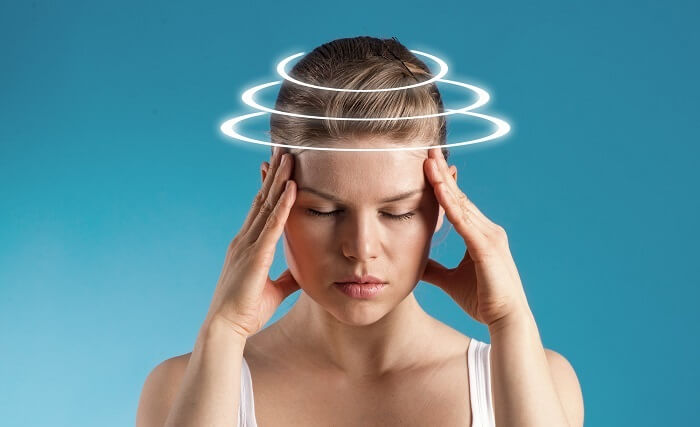
Such symptoms can occur with pressure drops caused not by serious cardiac disease, but by emotional overwork, severe fatigue, excessive physical exertion. In this case, it is enough to rest and wait until the unpleasant symptoms finally disappear.
If lays ears and blood is flowing from the nose, it can extremely dangerous symptom. If the blood does not stop within 10 to 15 minutes, other symptoms occur, severe dizziness, you need to consult a doctor, it is advisable to call an ambulance if there is no other possibility.
Important! If, with nasal congestion, blood from the nose has gone, in no way case you can go to bed, throw your head back.
What to do?
If the cause of this symptom in blood pressure drops, you need to measure it with a tonometer and set indicators above or below normal. Depending on this, you can provide first aid.
If the blood pressure indicators are higher than normal, you need to lie down, put off all cases. It is advised to breathe deeply, you can take a douche or make a bath with warm water, dip your hands in it for a few minutes. You should not take any drugs, you can turn to them if the pressure is for a long time does not fall down. You can also try an acetic compress, for this you need to soak a cloth apple cider vinegar and put on foot for 5 - 10 minutes.

If your blood pressure is low, depending on the severity of the condition, you can take a short walk, exercise. Positively affect the lowered pressure of coffee, chocolate, just one cup of drink or a few squares of dark chocolate. A strong tea with lemon also has a tonic effect; mint or lemon balm are added to it.
If, despite the measures taken, the condition continues to worsen, there is a pre-unconscious state, severe weakness, it is necessary to consult a doctor immediately. With a strong decrease or overestimate of indicators, you may need to call an ambulance.
What if the headache hurts the ears, the pressure is normal
If blood pressure indicators are measured, they are within the normal range, the cause of these symptoms may be different. Other pathologies that can lead to pressure on the ears from the inside include the following:
- Inflammation auditory tube - Eustachitis. This condition can lead to inflammatory diseases The nasopharynx, the mucous membrane of the auditory tube becomes inflamed, leading to congestion in the ears, headaches, and other symptoms.
- Inflammatory diseases of the nasopharynx. With various forms of rhinitis, sinusitis, sinusitis, otitis, and other diseases, there may be a feeling of congestion in the ears. Usually there is a feeling of pressure on the eyes and ears.
- High intracranial pressure lays the ears. This symptom is one of the signs of the development of this condition, which can be extremely dangerous for life and health. It may occur due to injury for a number of other reasons.
If, with congestion, pain in the head, severe weakness occurs, the temperature rises high, other serious symptoms develop, you should immediately consult a doctor to find out the exact cause of this condition. Congestion is a fairly common symptom in itself, it can occur with many diseases.
How to cure hypertension forever?
According to statistics, about 7 million annual deaths can be attributed to high blood pressure. But studies show that 67% of hypertensive patients do not suspect that they are sick! How can you protect yourself and overcome the disease? Dr. Alexander Myasnikov told in his interview how to forget about hypertension forever ...
Popular
- Breast cancer is curable at any stage.
- The remedy for the cold Sinupret
- Azitrox - official instructions for use
- Chicken-bjaka: allowed antibiotics were found in Russian chicken
- Oral Cancer: Symptoms and Treatment
- Dark and thick blood during menstruation.
- Modern analogues of doxycycline tablets
- Is it possible to die from pneumonia
- What earwax will tell all about your health
- Tussin: instructions for use



